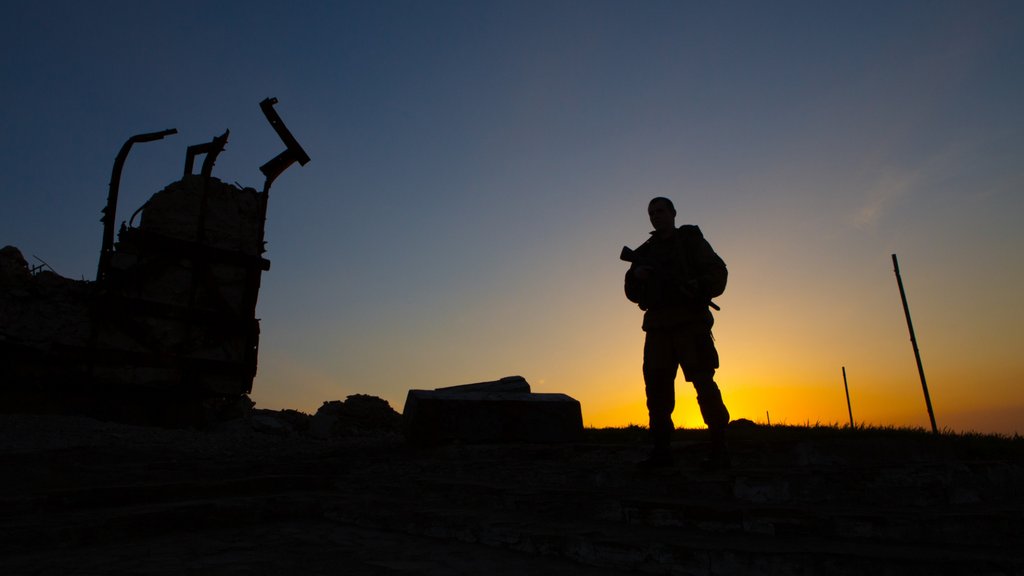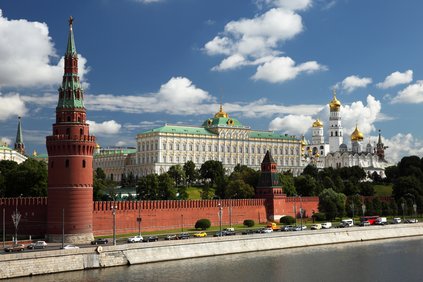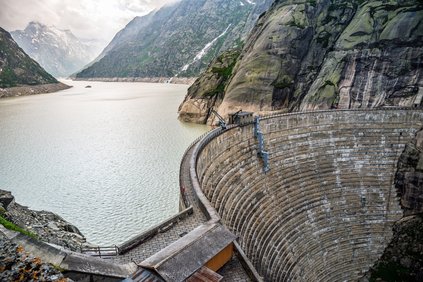Background - 28.01.2022 - 00:00
Diplomacy, Realpolitik, and the Ukraine crisis
James W. Davis on the Russia-Ukraine conflict, Ukrainian nationalism, and political solutions for Europe's handling of the threat from Russia.

28 January 2022. Although its central principles had already been recognised by Thukydides, we have the Germans to thank for the term 'Realpolitik'. Typically ascribed to the liberal publicist August Ludwig von Ro-chau, who published his principles of Realpolitik in the middle of the 19th century, Realpolitik de-scribes a particular understanding of the realities of political life and the requirements of successful foreign policy which go hand in hand with it. It was none less than Otto von Bismarck who perfected the art of this kind of politics. Concerning the question of German unification, the Federal Chancel-lor's answer to the history of the Paulskirche and its, at the time, liberal opposition to increased mili-tary spending was clear: “It is not through speeches and majority decisions that the great questions of the day will be decided – that was the great mistake of 1848 and 1849 – but by iron and blood.” And through the skilful use of force – both to conquer the weak and intimidate the strong – he con-solidated a weak alliance of dynastic regions into a German nation state with its capital in Berlin.
The key role of power in international policy
In the Berlin Republic, in contrast, there are barely any politicians who are prepared to concede the key role of power in international policy, let alone allow the term Realpolitik to pass their lips. The situation is different in Moscow, where Vladimir Putin's command of the German language is accompanied by his ability to dominate Europe's political agen-da with a skilled deployment of force and threats of further offensives. Three international confer-ences within a week are no mean feat for a quantité négligeable, or weak regional power, as President Obama once called the nuclear-armed Russia.
But how useful is the lens of the classic Realpolitik for analysing the current confrontation with Ukraine? Does it give us clear political solutions for dealing with the Russian threat? It's clear that the Realpolitik of the 19th century cannot be translated directly into the political practice of the 21st century. However, the contemporary discussion would benefit from a sober assessment of the basic points of superpower politics in the current stand-off.
The premise of Realpolitik
Realpolitik starts with the premise that nation states attempt to defend their relative positions in the international system and therefore respond particularly sensitively to perceived threats to their status and security. So there is no need to entertain the claim, which has meanwhile been discredited, that the West had broken a promise never to extend NATO out towards the East to recognise that Moscow would probably not tacitly accept the NATO's Bucharest Declara-tion of 2008, whereupon Georgia and the Ukraine were presented with the prospect of NATO mem-bership. Even if we in the West know that NATO is not entertaining any offensive intentions to-wards Russia, it is by no means clear that Putin understands this. And to the extent that an economi-cally successful and democratically governed Ukraine could pose an ideological threat to Putin's au-thoritarian rule, Moscow could perceive efforts by the European Union to promote a positive out-come – from the point of view of its liberal values – as a threat. For Putin, the intentions behind our policies are less important than their consequences.
Does this mean that the West should surrender to demands that are directed towards us through the barrel of a gun? Realpolitik advises caution here. Although we should not be obsessed with worrying about our reputation, there is a risk that withdrawing from commitments that have already been declared with insufficient and credible safety guarantees will not only satisfy the aggressor but will also lead to him raising his demands. However, it would be just as dangerous for us to put our repu-tation on the line for matters which we either do not want to fight for or cannot fight for. We there-fore have to ask ourselves the question: is the prospect of NATO membership for Ukraine something worth fighting for? If yes, for whom?
The role of the USA
At the 1878 Berlin Congress on the question of the Balkans, the Iron Chancellor maintained that, in his view, the Balkans were "not worth the life of a single Pomeranian grenadier". It's easy to imagine how the mother of a soldier in the far-flung American state of Utah will say the same about Ukraine. Much like Neville Chamberlain when assessing the mood of the English on the question of the Sudetenland in 1938, for many Americans, the current crisis is simply a dispute in a far-flung country between people about whom they know little. In Munich, Chamberlain showed no interest in defending the territorial integrity of Czechoslovakia. And until now, President Biden has also avoided saying that the USA would fight for the territorial integrity of the already divided Ukraine. But a realistic assessment of the situation leads to the conclusion that the USA is currently left no alternative when it comes to defending an independent Ukraine. In the face of the eroded capabilities of the European allies, without American armed forces, the situation would resemble a street cat surrounded by mice. The challenge for the cat is not to think about how it should escape the situation but to choose its first course from the buffet. But would the cat be able to digest its meal?
Although some observers take the view that a Realpolitik solution to the Ukraine crisis would con-sist of recognising Russia's claim to a sphere of influence over the "near abroad", this way of thinking was already outdated in Bismarck's time. After all, German unification was essentially enabled by widespread nationalism as much as it was by Prussian power. As the dynastic principle of the 18th century has to make space for Napoleon and the idea of national – if not altogether popular – sover-eignty, territories could no longer be moved back and forth like figures on a chessboard, or simply occupied by foreign powers.
Carl von Clausewitz and the theory of "small war"
The new situation had already been recognised by a Prussian soldier named Carl von Clausewitz. Taking the example of the Spanish guerilla war and the rebellion against Napoleon in Tirol led by Andreas Hofer, he developed the theory of "small war", which was no less than a strategy of armed people's resistance. Notwithstanding Putin's asser-tion of an ongoing unity among the peoples of the historic Rus, it is a fact that the majority of Ukrain-ians today ascribe themselves a Ukrainian and not a Russian identity. Ukrainian nationalism and the prospect of even an initially successful invasion leading to sustained and costly armed resistance thus represent the greatest deterrent against a Russian offensive.
Against this backdrop, Berlin's resistance against the supply of arms to Ukraine makes even less sense than the general ban on the supply of arms to crisis regions. The obvious question of "where else?" is not really a heretical one. But if deliveries of arms are to play a role in the kind of deterrent that has long been practised by the Swiss, while at the same time not giving Putin any ammunition for his arguments that Russia is actually the country under threat, they have to be a certain type of weapon. They need to be light, highly mobile and concealable so that they can be deployed anywhere and cannot easily fall into the hands of an invading Russian military force. This is because these types of weapons are the most useful for the type of armed resistance that can inflict ongoing costs to an occupying power. Mobile, secure communication equipment is required to coordinate an effec-tive resistance. Furthermore, medical supplies are vital for emergency care.
Of course, introducing this kind of policy alone is triggering a Pavlovian reflex in Berlin. We have known this mantra since 11 September 2001 at the latest: "Conflicts can only be resolved politically!" But this is precisely the point. To keep Putin at the negotiating table, the prospect of a quick military victory must be ruled out. Successful Ukraine policy will be enabled not by separating but by merg-ing diplomacy and force.
James W. Davis is an American national and professor for international policy at the University of St. Gallen. The text published here was first released in a slightly abridged version in the NZZ. This text was translated by 24translate GmbH.
Photo: Copyright Adobe Stock / Grigory Kubatyan
More articles from the same category
This could also be of interest to you
Discover our special topics



![[Translate to English:] Choix Goncourt de la Suisse | unisg.ch](https://www.unisg.ch/fileadmin/_processed_/b/a/csm_Choix_Concourt_de_la_Suisse_HT-Stibi-069_2110740678.jpg)












